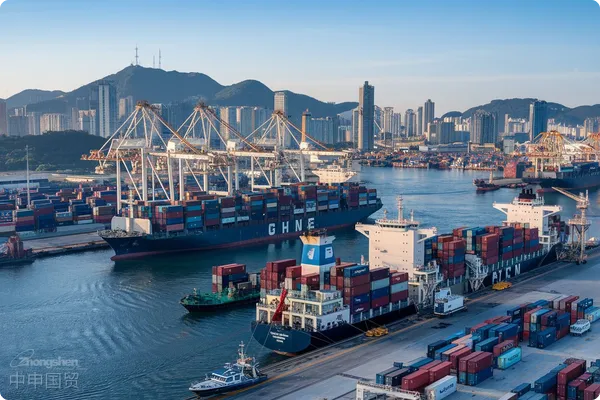- Shanghai Zhongshen International Trade Co., Ltd. - Two decades of trade agency expertise.
- Service Hotline: 139 1787 2118
Intellectual property protection has become a core issue in global trade. Forimport and exportgoods, customs protection of intellectual property is particularly important. In this regard, the Chinese customs, in accordance with relevant laws and regulations, protects trademark exclusive rights, copyrights and rights related to copyrights, patents, World Expo symbols, Olympic symbols, etc., which are related to imported and exported goods and protected by the laws and administrative regulations of the Peoples Republic of China. So, how can intellectual - property - compliant goods pass through customs quickly? How to handle customs record - filing of intellectual property? How do enterprises bear legal liability for infringement? This article will introduce these issues in detail.
I. Procedures for Handling Customs Record - filing of Intellectual Property
For enterprises, handling the record - filing of customs protection of intellectual property is an important means to protect their own rights and interests and improve customs clearance efficiency. The record - filing process can be handled by the enterprise itself or entrusted to an agent. The specific steps are as follows:
(1) User registration: Register on the website of the General Administration of Customs in the name of the intellectual property rights holder, fill in the necessary user information, and obtain the system account and password.
(2) Data entry for record - filing application: Include relevant information such as the name, content, scope of approved goods for use, and licensing status of the intellectual property.
(3) Receive approval or rejection notice: The General Administration of Customs will make a decision of approval or rejection within 30 working days. The rights holder can modify the application content according to the rejection reason and submit it again.
II. Strategies for the Quick Customs Clearance of Intellectual - Property - Compliant Goods
In order to ensure the quick customs clearance of goods, enterprises need to actively negotiate with the rights holder, strive for the authorization of the rights holder, and adopt the pre - confirmation of rights strategy to speed up customs clearance. In this process, enterprises can operate through the following steps:
(1) Obtain the authorization of the rights holder: Before importing or exporting goods using intellectual property, relevant enterprises should actively coordinate with the rights holder to register the consignor/consignee of the customs declaration form as a legitimate user in the customs record - filing system.
(2) Implement the pre - confirmation of rights strategy: Enterprises should apply to the customs at the place of entry/exit for assistance in pre - confirmation of rights before the actual import or export of goods and provide relevant evidence materials to the customs. The customs at the place of entry/exit will handle relevant inspection and customs clearance procedures according to the pre - confirmation of rights situation to achieve quick customs clearance.
III. Legal Liability for Enterprise Infringement
For enterprises that infringe intellectual property rights, the customs will impose administrative penalties or criminal penalties according to the specific circumstances, and the rights holder can also file a lawsuit with the peoples court in accordance with the law to demand the assumption of civil liability. The specific legal liability is as follows:
(1) Administrative Liability: For suspected infringing goods determined to constitute infringement, the customs will confiscate them and impose a fine of less than 30% of the value of the goods.
(2) Criminal Liability: If the act of importing or exporting infringing goods constitutes a criminal offense, the customs will transfer the case clues to the public security department and pursue criminal liability in accordance with the law.
(3) Civil Liability: The owner of intellectual property rights may file a lawsuit against the infringing enterprise in the peoples court in accordance with the law, demanding that it bear civil liability and compensate for the losses caused.
The customs protection of intellectual property rights can not only improve the customs clearance efficiency of enterprises, but also protect the rights and interests of enterprises. At the same time, it also safeguards the national economic security and a fair - competitive market environment. Therefore, enterprises should attach great importance to the customs protection of intellectual property rights to ensure that their legitimate rights and interests are not infringed.
Related Recommendations
? 2025. All Rights Reserved. 滬ICP備2023007705號-2  PSB Record: Shanghai No.31011502009912
PSB Record: Shanghai No.31011502009912










